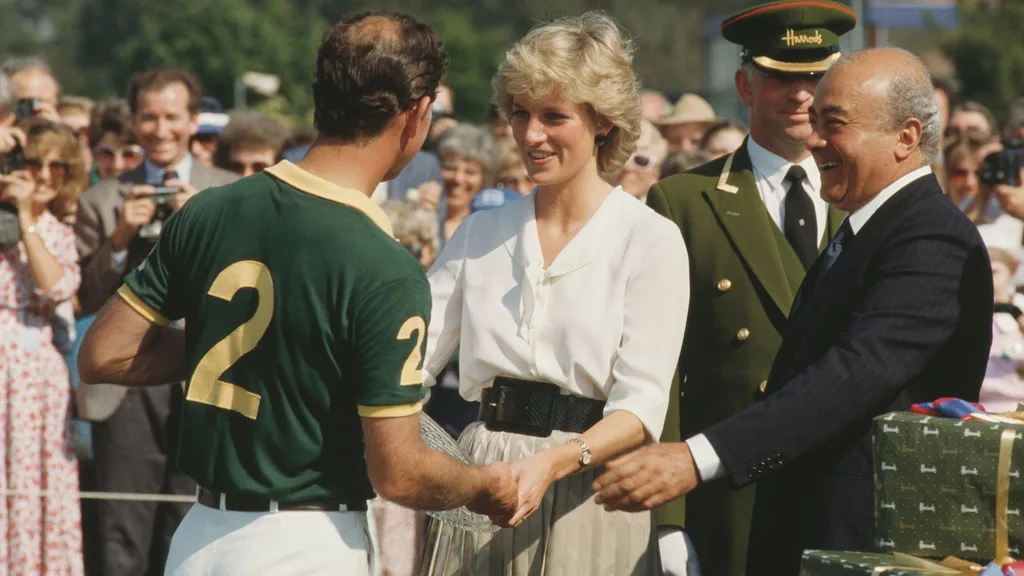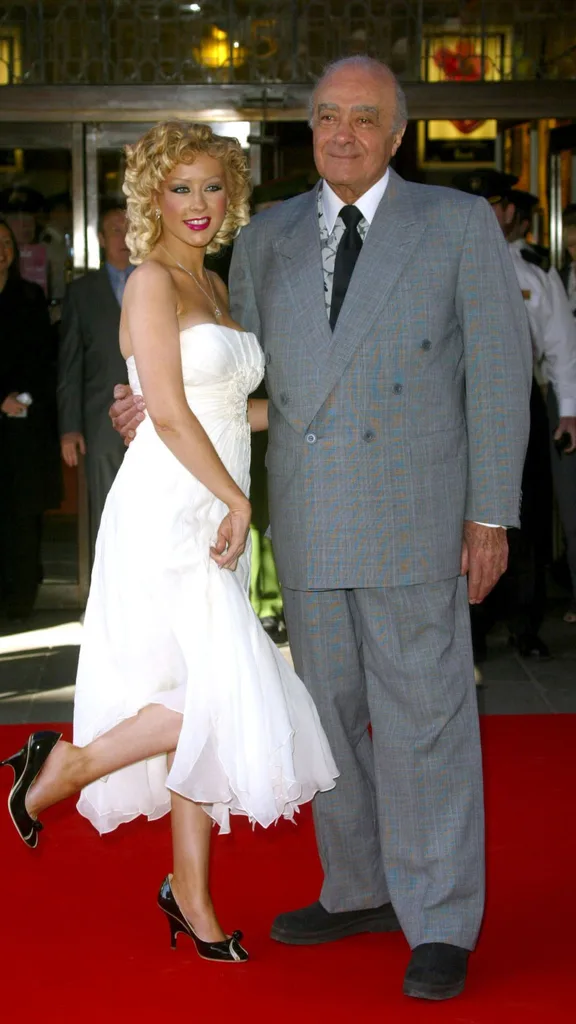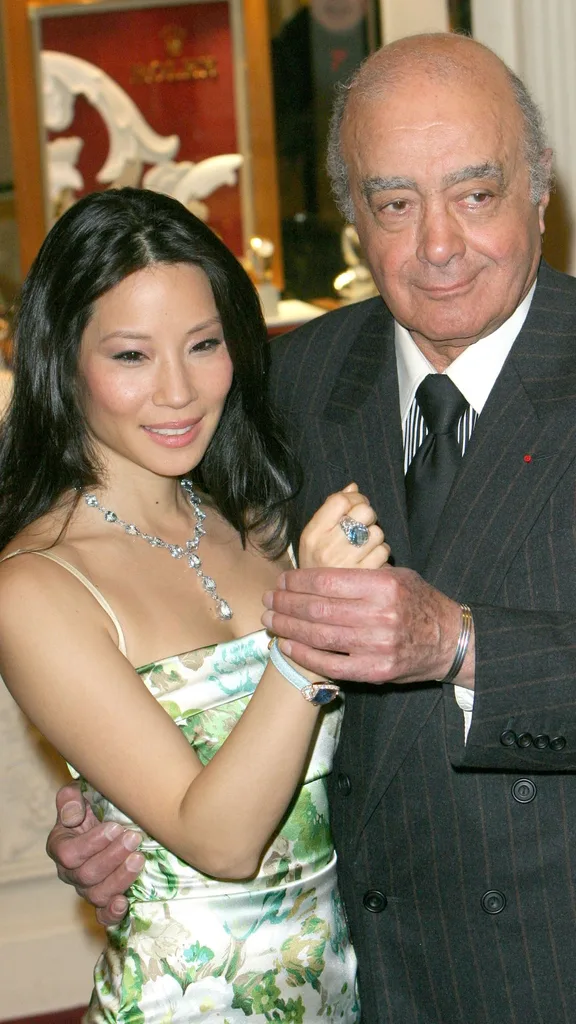Content warning: this article discusses instances of rape and sexual assault.
Six Australian women have come forward with allegations against Mohamed Al Fayed, five of which were employed at luxury department store Harrods between 1985 and 2010.
The legal representative for the accusers, Bruce Drummond KC, spoke with ABC, speaking about the aftermath of the alleged assaults and how it forced the victims to leave London for good.
“It was the most wonderful thing they had, quite understandably, working for this amazing store, working for this very powerful individual who was a billionaire … then a lot of them, after they had been subjected to this horrific ordeal, fled [back to Australia],” Bruce Drummond KC said.
He also shared that the six women, one who was working for a supplier to Harrods, were all in their twenties at the time of the alleged assaults.
Ensuring the outlet that the accusers weren’t concerned about having Al Fayed face up to his alleged crimes, he stated that the claims are about accountability – for Al Fayed, and for his enablers and institutional protectors.
“It’s about seeing justice in their own eyes and justice for these ladies means accountability, which means that we out him for the monster he was … it means setting a precedent so young girls in the future don’t go through the same thing,” he said.
More than 400 alleged victims have contacted the legal team since the BBC’s documentary Al-Fayed: Predator at Harrods first aired in September.
According to the Justice for Harrods Survivors (JFHS), the legal team set up to represent the hundreds of accusers, Al-Fayed’s actions are indicative of an organisational culture that actively worked to silence its victims and protect perpetrators.
“That, in our opinion is an industrial scale abuse, abuse that could only have been perpetrated with a system that enabled the abuse to happen,” said Drummond KC
Who Is Mohamed Al Fayed?

If the name “Al Fayed” means something to you, there’s a good chance you have, to some extent, followed the life of the late Diana, Princess of Wales.
Mohamed Al Fayed was a billionaire who, at one time, owned the luxury British department store Harrods, as well as Fulham Football Club, and also the Ritz-Carlton Hotel in Paris. He had four children — Dodi Fayed, Omar Fayed, Camilla Al Fayed, Karim Al Fayed, and Jasmine Al Fayed — and died at the age of 94, in August 2023.
Dodi Fayed was Princess Diana’s love interest in the months leading up to, and at the time of, her tragic death in 1997. He was an Egyptian billionaire and scion, and he lost his life alongside Diana following the fatal car crash in the Pont de l’Alma tunnel in Paris. He was also the eldest son of Mohamed Al Fayed, who has recently come back into the media spotlight.
Why Is Mohamed Al Fayed In The News Again In 2024?
In September, the BBC released a documentary and podcast series titled Al-Fayed: Predator at Harrods. The series details the “vile” behaviour of Al Fayed, particularly in the years that he owned Harrods, which was between 1985 and 2010.
“Mohamed Al Fayed was a monster, a sexual predator with no moral compass whatsoever,” says one woman who explains that she was a teenager when Al Fayed raped her. “We were all so scared. He actively cultivated fear. If he said ‘jump’ employees would ask ‘how high’.”
She explains that he viewed employees as “playthings”, and multiple men and women who worked at Harrods at the time told BBC that he would walk the sales floors of the department stores and promote young female sales assistants to work in his office, with the intent to assault them.
At the time of the documentary’s release, BBC had heard testimony from 20 victim-survivors who are ex-employees of Al Fayed. Shortly following the release, more than 220 people had come forward with their own claims of sexual assault and rape.

Claims against the department store have also come to light, with survivors stating that his abuse was well-known to the store, which not only failed to investigate but actively tried to cover up his crimes. The store’s current owners have said they are “utterly appalled” by the allegations.
Al Fayed’s behaviour apparently “wasn’t even a secret”, according to Tony Leeming, a Harrods department manager from 1994 to 2004. “And I think if I knew, everybody knew. Anyone who says they didn’t are lying, I’m sorry,” Leeming told BBC.
According to members of Al Fayed’s security team, it was well-known to everyone who worked on Al Fayed’s team. “We were aware that he had this very strong interest in young girls,” says Eamon Coyle, who joined Harrods in 1979 as a store detective, then became deputy director of security from 1989-95.
Many employees have also explained that Al Fayed fostered a culture of fear at Harrods, in part, by recording employees with hidden cameras and voice recording devices. Coyle explains that listening to these tapes was part of his job. “He [Fayed] bugged everybody that he wanted to bug,” he says.

“The spider’s web of corruption and abuse in this company was unbelievable and very dark,” says barrister Bruce Drummond, from a legal team representing a number of the women.
This isn’t the first time allegations against Al Fayed have come to light, and in fact, over the years, a slew of allegations have been published about Al Fayed. In 1995, Vanity Fair ran an article detailing allegations of racism, staff surveillance, and sexual misconduct, though this was quickly settled by a senior Harrods executive on the condition that any evidence gathered by the publication of sexual misconduct must be kept out of the public discourse.
More stories detailing sexual assault claims were released in 1997 (by ITV) and in 2008, and again as recently as 2017 and also 2018 (by Channel 4). None of these reports resulted in charges against Al Fayed, and countless stories of non-disclosure agreements have since predictably surfaced.
Since the release of BBC’s documentary, James McArthur, who was a Harrods chief executive for what he described as a “most unpleasant 10 months” in 2008 has released a statement. He says that while he was aware that Al Fayed’s behaviour generally was abhorrent, he wasn’t aware of the sexual assault claims.
“I am absolutely horrified by the details of the allegations bravely brought to light,” he said. “My heart goes out to Fayed’s victims, and I do hope very much that they will get the justice and closure that they are seeking.”
The department store has also said it is conducting its own investigations into claims, including “looking at whether any current staff were involved in any of the allegations either directly or indirectly”. This follows claims from a former Harrods employee who told BBC News that a manager who still works at the store failed to investigate her complaints about Al Fayed’s inappropriate behaviour.
This is a developing story.
If the content of this story has affected you, there is help available, including survivor mental health support and legal reporting.
Full Stop Australia (national phone and online counselling for survivors), 1800 385 578.
The Survivor Hub (youth and survivor-led grassroots organisation).
NASASV (support directory for sexual assault services and reporting organised by jurisdictions), (03) 5025 5400.
This article originally appeared on Marie Claire Australia and is republished here with permission.







